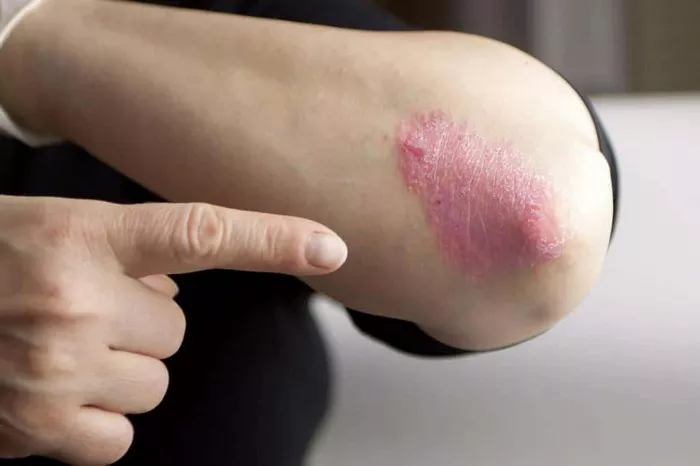Psoriasis, affecting up to 3% of the population, is a chronic skin condition characterized by a thick, scaly rash often accompanied by itching and discomfort. Dr. Sarah Lonowski, a dermatologist at Nebraska Medicine, explains that psoriasis is an immune-mediated disorder that leads to inflammation and thickening of the skin, characterized by periods of flares and remissions.
Distinct from eczema, which causes dry, itchy skin and often starts in infancy or childhood, psoriasis primarily affects individuals aged 30 to 60. Genetic factors and environmental triggers like certain medications, infections, stress, cold weather, smoking, or abrupt steroid withdrawal can contribute to its development.
Symptoms of psoriasis include red, inflamed patches of thickened skin, typically found on elbows, knees, scalp, lower back, palms, and soles. Unlike eczema, which tends to affect skin in flexed areas like inner elbows and behind knees, psoriasis plaques are thicker and more defined.
Dr. Lonowski emphasizes that although there is no cure for psoriasis, effective treatments are available to manage symptoms. These treatments range from topical creams and oral medications to advanced biologic therapies that target the underlying immune dysfunction.
It’s important to seek medical advice if psoriasis symptoms—such as itching, pain, or flaking—are bothersome. Psoriasis is increasingly recognized as a systemic inflammatory condition associated with metabolic syndrome, heart disease, and diabetes. Regular medical evaluation is crucial to monitor potential health complications, including psoriatic arthritis.
Dr. Lonowski stresses the benefits of maintaining a healthy lifestyle, including avoiding smoking, following a Mediterranean diet, exercising regularly, managing stress, and maintaining a healthy weight, all of which can contribute to better management of psoriasis symptoms.
For individuals living with persistent itching and rash, effective treatment options are available to alleviate symptoms and improve quality of life.



























